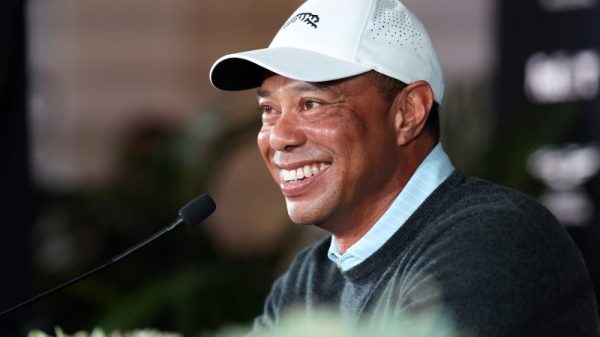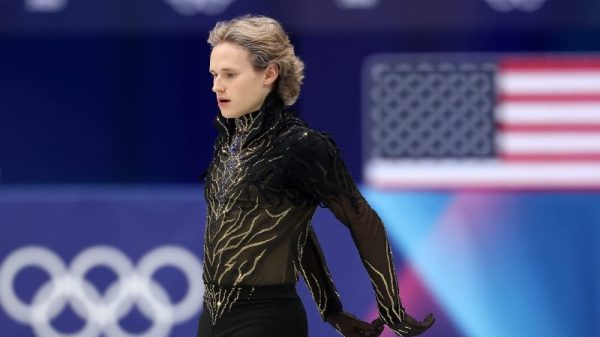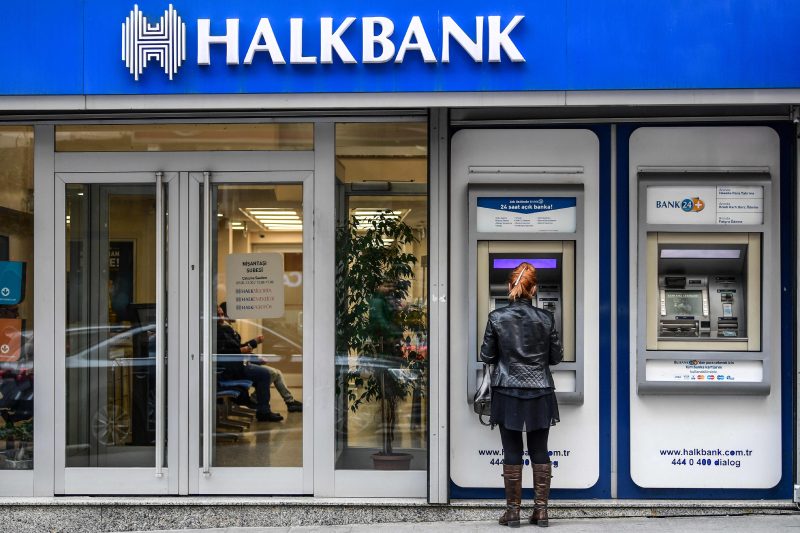The Supreme Court faced weighty and seemingly novel questions Tuesday as it considered whether the federal government can pursue criminal charges against Turkey’s state-owned bank, which is accused of helping to launder billions of dollars so Iran could evade U.S. economic sanctions.
A lawyer for Turkey’s Halkbank told the justices that sovereign immunity shields the institution from criminal prosecution under centuries-old precedents. But two lower federal courts have said the prosecution may proceed, and that there is no prohibition in federal law against the case being pursued by a U.S. attorney in New York.
The initial charges against Halkbank were brought during the Trump administration, and threatened the close relationship between President Donald Trump and Turkish President Recep Tayyip Erdogan.
Prosecutors alleged that from 2012 to 2016, Halkbank and its senior officers used front companies in Iran, Turkey and the United Arab Emirates and made “illicit transactions” that should have exposed the bank to sanctions under U.S. law. The front companies allowed the bank to transfer about $20 billion of what should have been restricted Iranian funds, according to the indictment, including at least $1 billion that passed through the U.S. financial system.
Although at least one official has pleaded guilty to the scheme, Halkbank has resisted the indictment.
Washington lawyer Lisa S. Blatt, representing Halkbank, said the bank is basically an arm of the Turkish government and is protected by precedent that forbids one nation from haling another into its courts for criminal prosecution. Moreover, she said, the 1976 Foreign Sovereign Immunities Act (FSIA) limits the jurisdiction of American courts over lawsuits against foreign countries.
“The U.S. does not dispute that criminal trials against sovereigns were unthinkable in 1789, would violate international law today, are unprecedented anywhere, and would risk retaliation,” Blatt said. The same goes for entities that are government-owned or controlled, she said.
If the Supreme Court were to agree with the government that Halkbank can be prosecuted, Blatt said, “for the first time in the history of the world and on the planet, time immemorial, you’re saying that it’s conceivable a foreign state can be indicted.”
But she received immediate pushback from Justice Brett M. Kavanaugh, who noted the prosecution started under Trump and is being defended by the Biden administration.
He said it would be “pretty bizarre for this court to tell the president of the United States as a matter of his national security exercise that even though the Constitution doesn’t prohibit what you’re doing, even though a statute doesn’t prohibit what you’re doing, this court’s going to prohibit your exercise of national security authority. … Talk about big steps.”
Still, Blatt’s arguments that the government’s position against immunity could lead to prosecutions of sovereigns even in state courts seemed to worry some justices, including Sonia Sotomayor and Neil M. Gorsuch.
“States would be free to try to bring lawsuits against Mexico for this or that, or perhaps China because of covid, or who knows what a creative state prosecutor might come up with,” Gorsuch said.
Sotomayor similarly worried about giving federal and state prosecutors “unbridled power” over charging other nations or their entities.
Justice Department lawyer Eric J. Feigin said the lower courts got it right when they found that the bank did not have immunity. The FSIA law that limits jurisdiction does not apply to criminal prosecutions, he said, and even if it did, the case against Halkbank would fit into the law’s exception for misconduct involving commercial activities.
Halkbank, Feigin said, is asking for a rule “under which any foreign government-owned corporation could become a clearinghouse for any federal crime, including interfering in our elections, stealing our nuclear secrets, or something like here, evading our sanctions and funneling billions of dollars to an embargoed nation, using our banks, and lying to our regulators.”
But Feigin hesitated when Justice Clarence Thomas asked, “Could you have indicted the country of Turkey itself as opposed to the bank?”
The lawyer acknowledged that “there is a strong customary international law principle against prosecuting” another country. But he said the U.S. government’s indictment in this case was representative “of a rise of government-owned corporations concealing some very serious crimes.”
Several justices raised the possibility of returning the case to lower courts for a fuller review of Halkbank’s claim of sovereign immunity. And Kavanaugh continued to advocate for a limited role for courts in a case involving issues of foreign policy and diplomacy.
“News reports suggest this was discussed with President Erdogan, that Turkey’s foreign minister is coming to the United States this week,” Kavanaugh said, adding “I don’t know about all of that. But I do know that we don’t know about all of that.”
“Yeah,” Blatt replied. “But I know that you shouldn’t let 12 Manhattan jurors figure this out, which is what you’re doing. You’re letting them go to a jury and put a foreign sovereign on trial.”
The case is Turkiye Halk Bankasi v. United States.



























